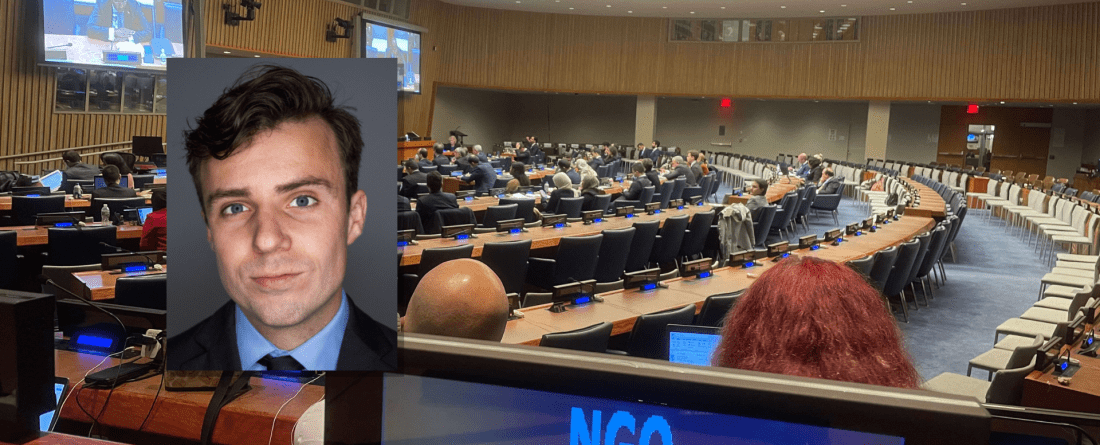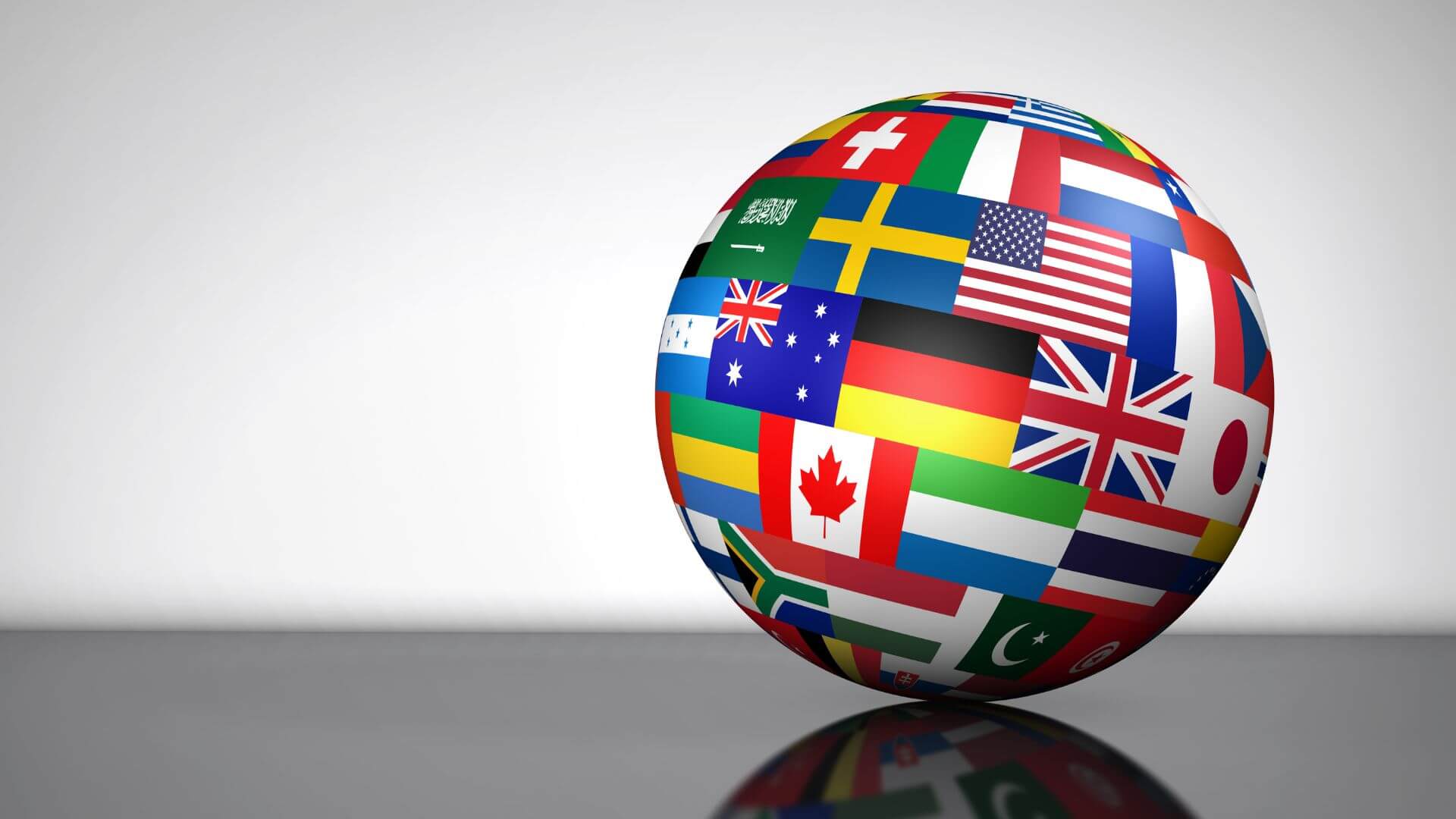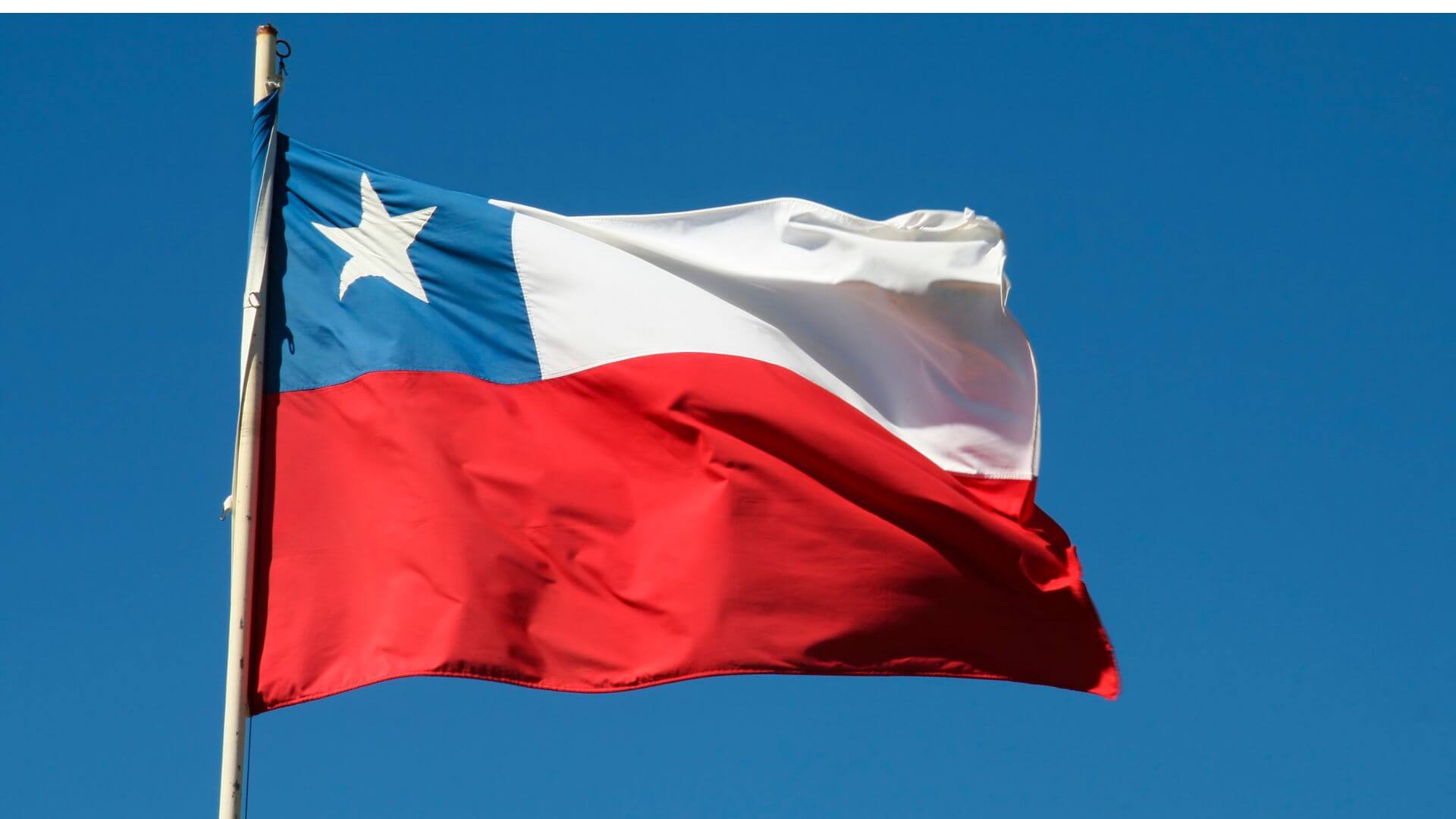
In November 2022, PhD student and Catherine M. Kelleher Fellow for International Security Studies Samuel Hickey attended the Conference on the Establishment of a Middle East Zone Free of Nuclear Weapons and Other Weapons of Mass Destruction (Third Session) at the United Nations (UN). Hickey participated in the conference on behalf of the Center for International and Security Studies at Maryland (CISSM) along with other civil society representatives accredited to be observers.
The UN conference is the latest step in a decades-long process to reach agreement on the complex set of reciprocal commitments needed to end concerns about a country in the region trying to enhance their own security by having clandestine nuclear, chemical, or biological weapons and delivery systems.
“Sending Sam to New York enabled him to experience first-hand both the creativity and the frustration involved in multilateral diplomacy,” said CISSM Director Nancy Gallagher. “It was a wonderful opportunity for Sam to build on previous professional experiences in the Middle East and working for an arms control NGO in DC, and to utilize analytical tools developed through our Ph.D. program, then to share his insights with classmates in my course on Cooperative Security, Arms Control, and Nonproliferation.”
The conference builds on a long history of diplomatic attempts to resolve the region’s nuclear asymmetry. Iran and Egypt proposed a nuclear weapon-free zone in the 1970s, which found support from every regional state, even Israel, by 1981. Following the use of chemical weapons in the Iran-Iraq war, Egypt expanded the proposal to include all weapons of mass destruction (WMD) and their delivery vehicles in the 1990s, and Nuclear Nonproliferation Treaty’s indefinite extension in 1995 was tied to global agreement to negotiate such a zone. After repeated failures to start the negotiations, the UN General Assembly voted in 2018 to a hold an annual conference until a treaty establishing a zone free of WMDs in the Middle East is negotiated.
The objective is an umbrella agreement building on existing accords that prohibit individual weapons of mass destruction, each of which has been endorsed by some, but not all countries in the Middle East. A "zone" agreement would ban the production, stockpiling and use of all WMDs, including chemical, biological, and nuclear weapons and their delivery vehicles, among the 22 members of the League of Arab States, as well as Israel and Iran. However, the conference has not been attended by Israel nor the United States so far, meaning the final negotiated text may not be acceptable to all parties.
“Just convening the conference for the third time is progress toward resolving the fundamental issues affecting regional security and instability,” said Hickey. “There are few forums where the whole region can meet to discuss such sensitive topics, but the lack of participation by all invited parties indicates that progress on a WMD-free zone in the Middle East remains tied to broader regional security issues. These challenges likely need to be addressed simultaneously.”
Since it became a global aspiration in 1995, the lack of progress toward this end-goal has wasted years of potential socioeconomic and political growth in the Middle East and hampered efforts to improve the broader nuclear nonproliferation and disarmament regime, according to Hickey.
"The frozen regional imbalance has empowered autocratic leaders as the solution to insecurity, which has encouraged domestic repression and prevented the flow of trade and human migration," asserted Hickey.
Hickey received a dual degree in physics and international relations from American University and spent several years working on these issues in think tanks in Amman, Jordan and in Washington, DC before coming to College Park. Hickey’s current research project examines how the vast verification architecture developed for the Comprehensive Nuclear-Test-Ban Treaty (CTBT) could support the negotiation and verification of a WMD-free zone in the Middle East.



